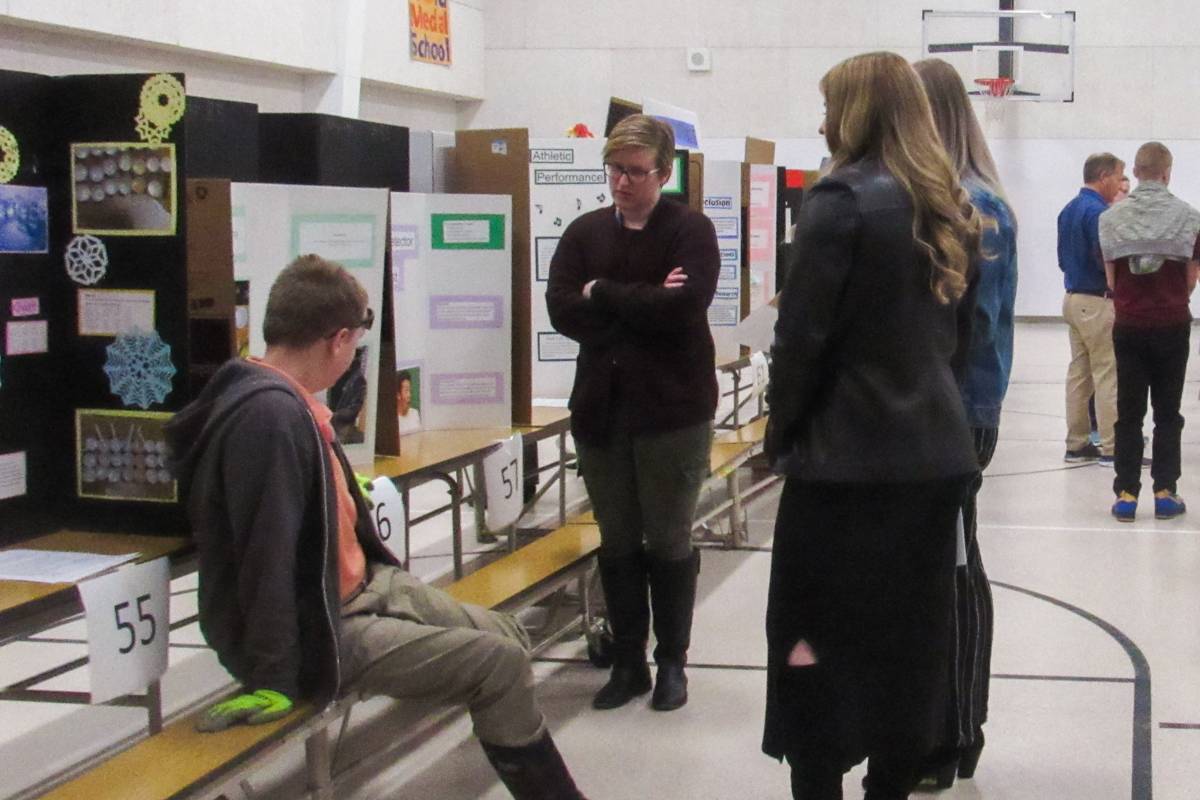Utah State University Researchers Volunteer at Local Science Fair
By Alyssa Chamberlain | April 11, 2022


Researchers in the Animal, Dairy and Veterinary Sciences Department recently had the opportunity to get involved in the community by volunteering at the Thomas Edison North science fair. Led by ADVS Associate Professor Jeffrey Mason, who has coordinated USU volunteers for the science fair in prior years as well, volunteers helped judge the middle school students’ projects by conducting interviews and scoring their work and presentations.
The science fair offers many benefits to the middle school participants, including the opportunity to better their speaking skills and build self-confidence by presenting their work to adults with whom they aren’t familiar. Additionally, participants gain exposure to the scientific process as they develop unique and creative projects, implement the scientific method to address the identified issue, and collect and evaluate the data surrounding their project.
Laura Adams, a graduate student pursuing a Ph.D. in reproduction and development, volunteered at the fair for a second time this year. Adams taught middle school before beginning her Ph.D. program and appreciates the opportunity to connect with students in the age group again. She enjoys seeing how the next generation views the world, what they view as issues, and what solutions they can think of and create themselves.
This year Adams judged projects in the engineering category, which were primarily coding-based or focused on alternative energy solutions. A project involving a small robot that was coded to avoid obstacles in its path and another using a laser-triggered alarm to help keep a dog in the yard were particularly memorable. She was impressed by how well the students she interacted with expressed themselves, both verbally and in writing, and with the creativity of their solutions. It gives her hope in the scientists of the future.
Adams believes that kids can “do” a lot of science at home using everyday objects. She saw examples of this in projects at the science fair, such as identifying the ideal conditions for storing fruit or testing how long different objects take to fall from a specified height.
“I think people may typically think of science as being done in a laboratory setting, but being able to test hypotheses, make inferences, and collect data are skills that can be performed and improved upon in any environment,” Adams says. “Science does not have to be complicated or expensive for it to be science.”